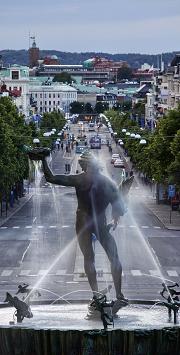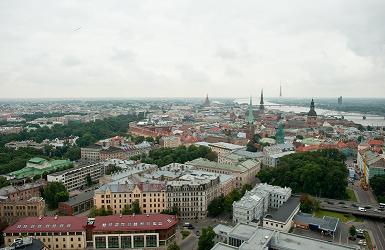The STEP-UP consortium brings together four European cities (Ghent, Glasgow, Gothenburg and Riga) that have a number of common topologies and socio-economic factors that will enhance their ability to work together and learn from each other.
Ghent
Ghent is the third-largest city in Belgium with a population of more than 243.000. Ghent is a historical, yet contemporary and dazzling city, presenting art and culture of the highest quality. The city has an important sea port and the largest Belgian student community, thus offering an ideal environment for the creation of innovative technology. It is also a frontrunner regarding bio based energy.
View Ghent's stunning "Creating a City" video here.
krist.poffyn@gent.be
Glasgow

Glasgow is Scotland’s largest city with a population of around 580,000 – with the wider urban conurbation having a population of 1.2 million. Changing patterns of trade have changed the shape of Glasgow’s economy – moving it towards knowledge based activities, finance, and commerce and away from traditional industries– but leaving around 8% of the city’s area as vacant land. Glasgow is engaged in a long-term transformation of its economy and regeneration of former industrial and port areas. The Scottish Government has set a target of reducing Scotland’s carbon emissions by 80% by 2050 and 42% by 2020 (against a 1990 baseline) with Glasgow supporting this through the Sustainable Glasgow Initiative, which aims to make Glasgow become one of Europe’s most sustainable cities. The City Council itself has set a target of reducing CO2 emissions from its own activities by 30% by 2020 as a contribution to a 40% reduction for the city as a whole, set out in the SEAP.
Gavin.Slater@glasgow.gov.uk
 | Gothenburg The City of Gothenburg is situated on the west coast of Sweden at the mouth of Gota Alv River. It is the second-largest city in Sweden with a population of around 500,000 and also has the largest port in the Nordic region. As a Scandanavian transport hub, it is the industrial and tourist centre of Sweden and the heart of Sweden’s growing business sector. Gothenburg is an ambitious city regarding environmental matters, with many outstanding projects and innovative solutions in the city, its district heating and cooling network for example is world leading. The city also has some of the most energy efficient residential buildings in Sweden being the home of the first large residential passively heated building in the country. anna.svensson@sbk.goteborg.se |
Riga Riga is the capital and the largest city of Latvia and the Baltic countries with the population around 699,200. The city lies on the river Daugava and is the largest port in Latvia, also loading energy resources (coal, petroleum products). Riga is included in the UNESCO World Heritage list and it is an important international transit hub with an airport, sea port and railways. Riga is amongst the most ambitious Eastern European cities and the first EU capital to sign the Covenant of Mayors. Main opportunities for Riga are built into the strategic goals of the city – to create an educated, skilled and culturally aware society, development of economics based on east – west linkages, life in the city in high quality neighbourhoods – but making it work in the city where there are specially protected environmental zones and protected cultural heritage sites. Inete.Ielite@riga.lv |  |